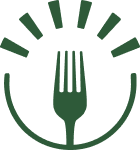We work diligently to accommodate a variety of food allergies/sensitivities and take food and allergy preparation very seriously. This is why we have allergen control programs designed to meet all USDA and FDA requirements and ensure that there are no undeclared allergenic materials in our products. We also publish all ingredients on the cardboard meal sleeve wrapped around every meal and have all the ingredient information available online.
However, please be advised that all of our entrees are prepared in kitchens that handle all of our ingredients. Like any facility, there is always an accidental possibility that some cross-contamination may occur.
If you need help removing any ingredients from your program that you may be allergic/sensitive to, please contact our customer service team. Its important to know that if we remove an ingredient from your program, we will remove the meal entirely, not just that one ingredient.
Some of the most common food allergies/sensitivities we get asked about include:
Onion: We have onions in most of our dishes, most often in very small pieces as an aromatic, and would not be able to exclude all forms of onion. If you are okay with small pieces of onion, we can exclude meals that have larger pieces.
Garlic: While we are able to exclude ingredients, our chefs use garlic in some form in most of our meals. We would not be able to exclude it and have enough meals to create a menu.
Tomatoes: Your program can be customized to exclude tomatoes in the form of tomato sauce. We can also exclude all tomatoes but that is more limiting, so we suggest starting with tomato sauce and those other ingredients first and we can continue to evaluate.
Dairy: We do have dairy in most of our breakfasts and in some lunch/dinner meals, most often in the form of cheese (although some dishes will have some dairy in the sauce component).
Overall, you have a couple of options when it comes to dairy:
We can exclude all dairy from your preferences, which would exclude all meals that have dairy in any form (this is more limiting). If youd like to exclude dairy, please contact our customer service team at 866-401-3438. Also, remember that you’ll want to select a lunch/dinner program only if excluding all dairy.
If you are tolerant of some dairy, keep dairy in your preferences. Review your menu each week to determine which meals you feel that youd potentially tolerate well and like to try.
In some cheese dishes, the cheese is mixed into the dish. In other dishes, however, the cheese is on top and can potentially be removed prior to heating. That would give you more meal options, and you can individually exclude meals from your program in your preferences page in your member portal (mybistromd.com) to custom select which meals with dairy youd like to keep in your preferences.
Soy: We do have soy in various forms in our meals and snacks, including in the form of hydrolyzed soy protein, tofu, edamame, soy lecithin, and soy sauce.
We can exclude any, all, or a combination of these ingredients depending on your tolerance. You would still have a wide variety of meal and potentially snack options with soy exclusions.
However, the chefs do use soybean oil in trace amounts as a non-stick spray coating on pans. Excluding this ingredient would be very limiting and we would lack enough meal options to put on your menu. If you can consume trace amounts used as a non-stick coating, we can exclude the other forms of soy.
Egg: We can customize your program to exclude eggs but do have eggs in most of our breakfasts. Therefore, we recommend signing up for our lunch/dinner program.
Gluten: Our gluten-free program excludes all meals and snacks that have wheat, rye, and barley. While we are not certified gluten-free, each of our kitchens is USDA certified and inspected. This means we follow all sanitation and allergen separation regulations for storing and cooking foods and cleaning.
FODMAP: Talking with your doctor is always a good idea before starting a new diet, but especially with the low FODMAP diet since it eliminates so many foods. The diet is temporary and should not be followed for long, as it is a short discovery process to determine which foods are troublesome for you.
While we can exclude ingredients, we really arent able to offer a FODMAP type eating pattern since a lot of these ingredients are in our meals (the biggest ones being garlic, onions, dairy, cabbage, and broccoli). Eliminating all the meals with high amounts of these vegetables will exclude a majority of our meals.
However, once you are able to learn which foods are troublesome for you, we can potentially create a program to exclude certain ingredients.





